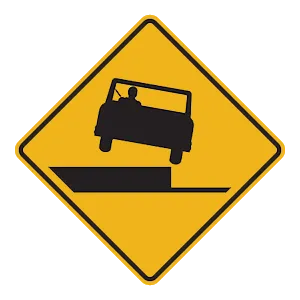Motorcycle Test | License NJ 2026 | FREE Online Practice! #6 Page 2 of 7
Take this FREE motorcycle test (license in NJ 2026) to check your knowledge of the road rules. To improve your results, download a motorcycle handbook online, study theory, and practice for free on our website. Still worried about how to get a motorcycle license in New Jersey in 2026? Check our website for more sample tests, train as much as possible, and boost your grades!
8 . Low-speed crashes:
Most motorcycle crashes occur at speeds lower than 30 miles per hour. Even low-speed crashes can be fatal.
9 . Motorcycle riders:
Longterm exposure to wind and engine noise can cause permanent hearing damage, even if the rider is wearing a full-face helmet. Wearing ear plugs or other hearing protection can guard against damage while still allowing the wearer to hear important sounds like horns and sirens.
10 . Motorcycle windshields:
A windshield is not an adequate substitute for either a face shield or goggles. Most windshields will not protect your eyes from the wind.
11 . Goggles will:
Wearing goggles provides protection for your eyes, but not for the rest of your face. A face shield provides protection for your whole face and is recommended above goggles. A windshield is not an adequate substitute for a face shield or goggles.
12 . What should you be most concerned about when you see this sign?

This sign indicates that the shoulder is lower than the road in the area ahead. If you drift off of the roadway and one wheel drops onto a low shoulder, do not slam on the brakes or steer sharply to try to get back onto the roadway. This could easily cause you to lose control of your vehicle.
13 . When you are stopped, you:
Shift down through the gears with the clutch as you slow or stop. Remain in first gear while you are stopped so you can move quickly if needed.
14 . When riding in a group, inexperienced riders should position themselves:
In a group of motorcyclists, riders with less experience should be positioned toward the front of the group, just behind the leader. This will allow more experienced riders to keep an eye on them without forcing the inexperienced rider to lead the group.
See the exact questions that will be on the 2026 New Jersey DMV exam.
99.2% of people who use the cheat sheet pass the FIRST TIME
Jeneen was tired of paying $5/gallon. She got herself a scooter that required the motorcycle license. She studyed the motorcycle test cheat sheet and passed her test the next day!
Christopher tells us how he knew nothing prior to obtaining the motorcycle study guide, and he only got one question wrong because he clicked on the wrong answer by mistake.



